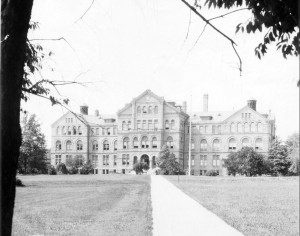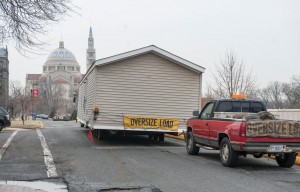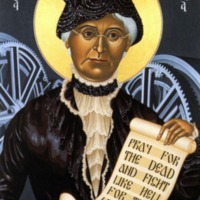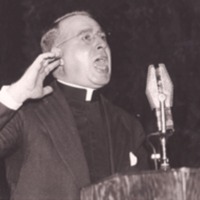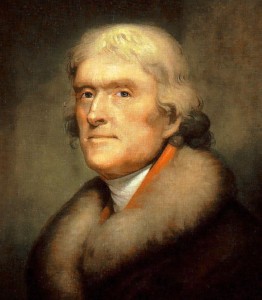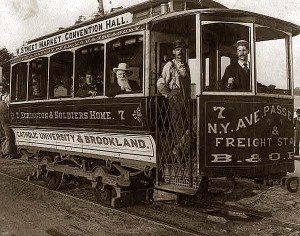
Catholic University, Fall 1904: Unpaved roads. No streetlights. A moonless November evening. A horse and buggy, and a wobbly trolley car. A formula for disaster? As it turns out, that night it was. But guess what? A fearless group of wandering CUA undergrads saved the day!
The first thing you need to know about this tale is that Trinity College was established across the street from Catholic University in 1897 to educate young women. At that time, CUA educated only men, and these were mostly diocesan priests and members of religious orders. In fact, many faculty members walked back and forth across Michigan Avenue, teaching at both CUA and Trinity. But the dynamic changed when CUA’s first male undergrads arrived in 1904. There was all manner of fretting over these young men fraternizing inappropriately with Trinity women (and vice-versa). One night, a group of men could be heard serenading the girls at Trinity outside their windows. No one ‘fessed up to the crime and the perps managed to escape with their pipes intact, but Rector Denis O’Connell (1903-1909) let it be known that no CUA men were allowed outside the dorm after 10 p.m. at night. Continue reading “The Archivist’s Nook: Roving Students Save Rector from Wreck”

